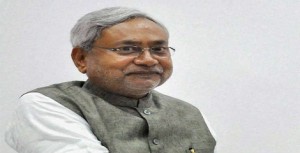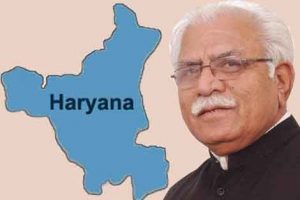By: D.K Choudhary
Government launches Swachh Swasth Sarvatra Initiative
i. The Union Government launched an initiative, Swachh Swasth Sarvatra, on December 29, 2016, to strengthen health centers in open defecation-free blocks.
ii. The initiative was launched by the Union Health Ministry in collaboration with the Ministry of Drinking Water and Sanitation and Human Resource Development.
iii. The ‘Swachh Swasth Sarvatra’ initiative aims to meet the requirements of two complementary programmes namely, Swachh Bharat Mission (SBM) of the Ministry of Drinking Water and Sanitation and Kayakalp of the Ministry of Health and Family Welfare.
4-Day World Bhojpuri Conference begins in Varanasi
i. The four-day World Bhojpuri Conference began in Varanasi, Uttar Pradesh on December 29, 2016 and will continue till January 1, 2017. High Commissioner of Mauritius to India, Jagdishwar Goburdhun informed that participants from over 18 countries are participating in the conference.
ii. The Conference has been organised at a private school in Badalalpur where a large number of Bhojpuri speakers residing in different parts of the world will deliberate over culture, religion, language and business among other issues.
iii. Aim: To strengthen the links of the people of Indian-origin, who once belonged to the Bhojpuri-speaking belt in India and had migrated to different parts of the world.
iv .A museum would also be set up along with a library and a committee hall for the preservation and promotion of the language.
v. During the conference, a ‘Bhojpuri Ratna’ award and ‘World Bhojpuri Karmayogi’ award will be conferred on over 25 people including Mauritius Prime Minister Anerood Jugnauth, Uttar Pradesh Chief Minister Akhilesh Yadav, Bihar CM Nitish Kumar, Chhattisgarh CM Raman Singh, Jharkhand CM Raghubar Das, BJP MP and Bhojpuri actor Manoj Tiwari, Bollywod actors Amitabh Bachchan and Shatrughan Sinha and other personalities.
Bihar Government approves 50% reservation of Backward Class in judicial services
i. Bihar government led by Chief Minister Nitish Kumar, on December 27 approved an overall reservation of 50% in both, subordinate and superior judicial services, in the state after consulting with Bihar Public Service Commission and Patna High Court.
ii. Currently, there was a provision of only 27 percent overall reservations in subordinate  services while no quota in superior services. Out of which the Extremely Backward Class (EBC) was getting 10 percent and Scheduled Castes (SC) and Scheduled Tribe were getting 16% and 1% respectively and zero percent for OBC.
services while no quota in superior services. Out of which the Extremely Backward Class (EBC) was getting 10 percent and Scheduled Castes (SC) and Scheduled Tribe were getting 16% and 1% respectively and zero percent for OBC.
iii. But after the decision, 50% posts would be filled through reservation in both services with 21% posts reserved for Extremely Backward Class (EBC), 12% for Other Backward Class (OBC), 16% for Scheduled Castes (SC) and 1% for Scheduled Tribe (ST).
iv. The 50 percent quota will be reserved in appointment of both services conducted by the BPSC to fill the posts of Judicial Magistrates and Munsif Magistrates along with appointments conducted by the Patna HC to fill the posts of Additional District and Sessions Judges.
v. Besides, the cabinet also decided 35 percent reservation for women in each category, besides one percent post would be reserved for ortho-physically differently-abled persons.
vi. The decision has been taken following the Supreme Court order on September 29 in the case of Bihar government versus Dayanand Singh.
Report Finds Tribal Community to Lag in Various Social Parameters than other Groups
According to latest released annual report of the Union Ministry of Tribal Affairs, the tribal population in India lags behind other social groups on various social parameters such as child mortality and infant mortality and women’s health, education, poverty etc.
Findings of the Report
i .As per the report a vast majority of tribal population is engaged in agricultural labour and women face higher incidence of Anaemia when compared to other social groups.
ii. The community also had the highest child mortality and infant mortality rates, when compared to other social groups.
iii. Though the educational achievements on the whole has improved but the data showed that the gross enrolment ratio among tribal students in the primary school level has declined from 113.2 in 2013-14 to 109.4 in 2015-16 along with high dropout rate.
iv. The overall poverty rates among the tribal population was found to be low when compared to previous years but still they remained relatively poorer when weighed against other social groups.
v. The report found that the health infrastructure experienced vast shortage in tribal areas. At an all-India level, there is a shortfall of 6,796 Sub Centres, 1267 Primary Health Centres and 309 Community Health Centres in tribal areas as on March 31, 2015.
vi. The report also stated that there was a wide gap in rehabilitation of tribal community members displaced due to various development projects. Out of estimated 85 lakh persons displaced due to development projects and natural calamities, only 21 lakh were shown to have been rehabilitated so far.
Haryana Government inaugurates the first digital investigation centre
i. Haryana Chief Minister Manohar Lal Khattar inaugurated the Digital Investigation, Training and Analysis Centre (DIATC) on December 28 at a function at Gurugram to  boost the state police’s capabilities to solve cyber crime cases.
boost the state police’s capabilities to solve cyber crime cases.
ii. The centre has been set up in collaboration with the National Technical Research Organisation (NTRO) of Government of India.
iii. The centre has a state-of-the-art cyber forensic laboratory and a high-tech facility in its premises to train officers from the state and other police forces.
iv. Apart from this, the Centre has a social media monitoring lab for enhancing technological capabilities of the Haryana police.
Haryana Signs MoU with Andhra Pradesh to Prepare Citizens Database
i. The state Government of Haryana signed a Memorandum of Understanding with Andhra Pradeshon December 29 to assist the state in compiling a centralised databaseof its population to ensure efficient and effective implementation of welfare programmes.
ii. The MoU for State Resident Data Base (SRDB) was signed by Haryana Principal Secretary, Information Technology Devender Singh and Secretary Andhra Pradesh, Information Technology, Vijayen in the presence of Haryana Chief Minister Manohar Lal Khattar and Andhra’s N Chandra Babu Naidu in Andhra Pradesh.
iii. Andhra already has such kind of database. It is a comprehensive portal for managing demographic (name, gender, age, photograph and address) and biometric information for facilitating “Unique ID” based identity authentication.